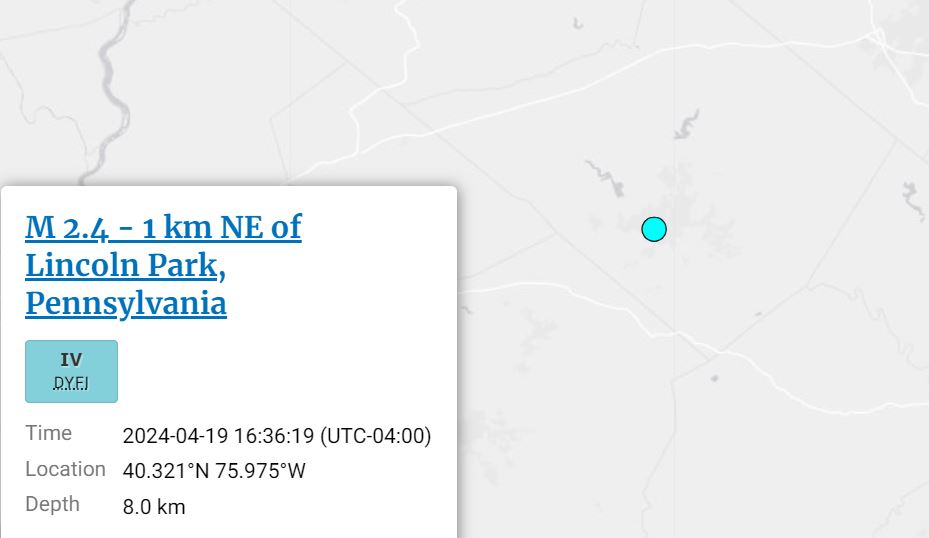In 2004, a stream running through the farm of Kim and Ken Jones in Wind Ridge went dry, not long after it was undermined by Consol Energy's Bailey mine. Nearly a decade later, the state Department of Environmental Protection ruled that any further efforts by Consol to restore water flow to the stream would be "futile,'' and ordered Consol to compensate "for the loss of Commonwealth resources.''
Consol appealed the decision to the state Environmental Hearing Board.
If the EHB upholds the decision, it could have a major impact on the future of longwall mining permits where water resources are involved.
The situation, now before the EHB, is a complicated one, as it is a separate case before the board involving five additional dewatered streams, also attributed to the Bailey longwall.
"Eleven states do longwall mining. This is the first time a state agency said a company can't fix a stream permanently because it was damaged by longwall mining,'' said Aimee Erickson, executive director of the Bridgeville-based Citizen's Coal Council. "This could be precedent setting.''
A stay, issued by Thomas Renwand, chief judge of the hearing board, is in place until the end of August to allow DEP and Consol an opportunity to negotiate. Renwand denied Consol's motion to keep CCC out of the negotiations.
"It gives the CCC an opportunity to sit at the table for the conversation with Consol over the dewatered streams,'' said Erickson. "This could be really important. The fact we are granted intervention status is great.''
Local
Breaking news and the stories that matter to your neighborhood.
In December, frustrated by the DEP's determination that the stream could not be fixed, and concerned her stream was going to just be ignored, Kim Jones filed a citizen's complaint with the Office of Surface Mining.
"I thought, 'Here we go. The DEP is just going to let Consol walk away,''' Jones said. "We knew what they were doing to fix it wasn't working all along. We tried to tell that to the DEP but they kept saying it was.''
The OSM and the DEP would concur that there was ``a failure to maintain the value and reasonably foreseeable uses of a perennial stream'' as it existed prior to coal extraction, and a "failure to mitigate the adverse effects to a perennial stream caused by underground mining.''
In its appeal, Consol maintained it has done what is required under current regulations and calls the DEP's actions "arbitrary, capricious, contrary to law and an abuse of discretion.''
In December of 2006, the DEP issued the first order of compliance requiring Consol to `augment the flow of the affected Jones' stream, with a suitable source of water, in a quantity sufficient to maintain flow within the normal range of conditions.'' Consol asked for and received multiple extensions to the required completion date.
Among the remedies attempted were grout injection into cracks, lining of the stream channel and pushing water into the stream via hoses. Consol said it completed everything that was "technologically and economically feasible'' to restore the stream, according to the DEP's steam protection policy guidelines.
In a letter to the company from the DEP, it advised Consol the department ``may require'' them to file revised mining plans or provide data to demonstrate that ``future underground mining operations will not result in a similar outcome to the streams that are proposed to be undermined'' by longwall mining.
In Consol's appeal it repeated the guidelines; if after five years of remediation pre-mining condition of the stream could not be restored, "compensatory mitigation,'' is allowed.
What that essentially means is that the company could legally ``walk away,'' as Jones feared and do mitigation work elsewhere. It is a tradeoff that Erickson said she has a big problem with.
"Why anyone thought it was acceptable for a company to walk away from a stream it is responsible for dewatering, as long as they remediate a stream in a different watershed - that's just unacceptable,'' Erickson said.
How do you come to such an agreement when there has been material damage to the hydrologic balance and the aquatic life therein? That issue isn't even being addressed, Jones said. The problem there seems to lie in the pre-mining data collected. It doesn't currently address what life exists inside the streams, according to Jones.
In February of 2005, the DEP received a recommendation from the California University of Pennsylvania Department of Earth Sciences regarding pre-mining data for streams. The report was prepared at the DEP's request to show the effects of subsidence from mining on surface structures and water sources.
The university's recommendation stated, 'The habitat, fish, and macro invertebrate data should be gathered prior to the undermining of a stream to make possible an evaluation of changes attributable to underground mining and a determination of whether or not such changes rise to the level of impairment.'
Thus far, the recommendation has not been followed. If, and when it is, it will be a little too late, Jones said.



